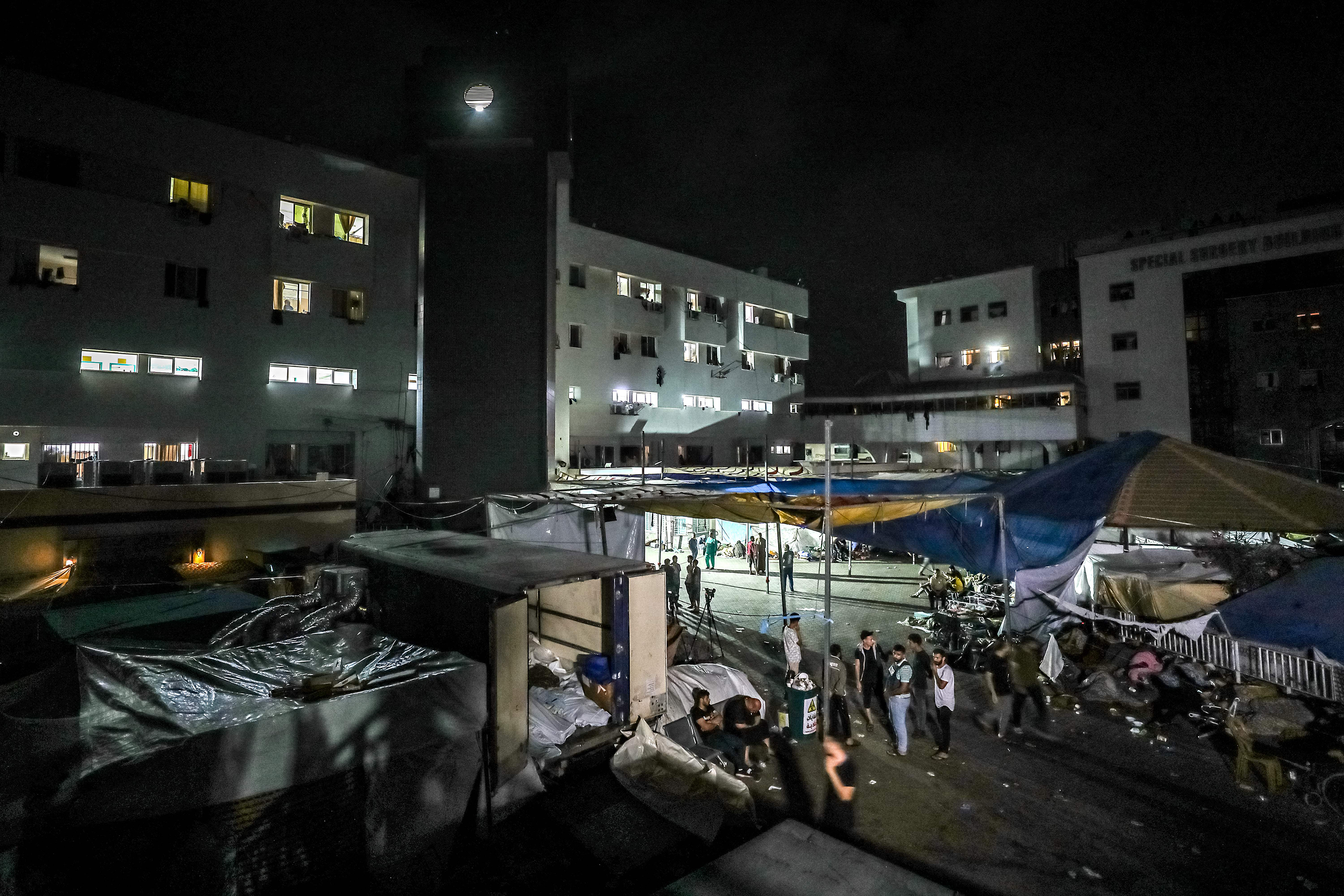
Israeli government ministers will meet Saturday night to discuss a decision made by the emergency war management cabinet to allow the daily entry of fuel trucks to Gaza.
Foreign Minister Eli Cohen said in an interview on Israel’s Channel 13 Friday night that he believed the decision to lift the fuel blockade — made late Thursday — should be taken by the full cabinet. The emergency war cabinet is a smaller group consisting of Prime Minister Benjamin Netanyahu, Defense Minister Yoav Gallant and Benny Gantz, the former chief of general staff and former defense minister.
“Personally and ideologically, I’m against the entrance of fuel [to Gaza],” Cohen said, while acknowledging that “under the international law, we must allow water, fuel and food in.”
“That’s why, amid this discussion, the prime minister has decided to assemble the cabinet tomorrow at 21:30 [local time] … In my opinion, this decision should be taken by the extended security cabinet … I want to first hear all the security officials, and their recommendations, and later make a decision,” Cohen said.
Earlier, Israeli Finance Minister Bezalel Smotrich had also raised objections.
“Allowing fuel to enter the Gaza Strip is a harsh mistake that goes against the cabinet decision. It shows weakness, and allows [Yahya] Sinwar [the political head of Hamas in Gaza] to sit in his air-conditioned bunker at ease, watch the news and keep manipulating Israeli society and families of hostages,” Smotrich said in a letter to Netanyahu that he also released on X (formerly known as Twitter).
Netanyahu had agreed to call a cabinet meeting after speaking to Smotrich, according to Tzachi Hanegbi, Israel's national security adviser.
“The prime minster talked to the finance minster and explained exactly what I have just explained,” Hanegbi said at a press briefing on Friday. “I assume he was not aware of all of the details. It has been agreed to assemble to cabinet tomorrow evening, to elaborate on the subject … I assume that it’ll be possible to discuss that decision, which was made based on the powers given to the war management cabinet.”
The United Nations needs 200,000 liters (52,834 gallons) of fuel each day in order to “meet the minimum of our humanitarian responsibilities in Gaza,” UN humanitarian chief Martin Griffiths said Friday. The lack of fuel has meant that “communications and other essential functions such as water desalination are progressively dropping offline,” Griffiths told the UN General Assembly.
Fuel is “essential for keeping people alive,” Griffiths said.






